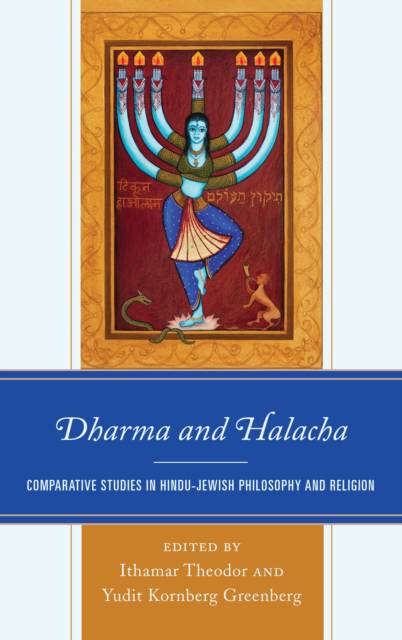
- Afhalen na 1 uur in een winkel met voorraad
- Gratis thuislevering in België vanaf € 30
- Ruim aanbod met 7 miljoen producten
- Afhalen na 1 uur in een winkel met voorraad
- Gratis thuislevering in België vanaf € 30
- Ruim aanbod met 7 miljoen producten
Zoeken
Dharma and Halacha
Comparative Studies in Hindu-Jewish Philosophy and Religion
€ 81,45
+ 162 punten
Omschrijving
This work provides an anthology of close textual readings and examinations of a wide range of topics by leading scholars in interreligious scholarship and Hindu-Jewish dialogue, offering innovative approaches to categories such as ritual, sacrifice, ethics, and theology while underscoring affinities between Hindu and Jewish philosophy and religion
Specificaties
Betrokkenen
- Uitgeverij:
Inhoud
- Aantal bladzijden:
- 272
- Taal:
- Engels
- Reeks:
Eigenschappen
- Productcode (EAN):
- 9781498512817
- Verschijningsdatum:
- 14/09/2020
- Uitvoering:
- Paperback
- Formaat:
- Trade paperback (VS)
- Afmetingen:
- 152 mm x 229 mm
- Gewicht:
- 403 g

Alleen bij Standaard Boekhandel
+ 162 punten op je klantenkaart van Standaard Boekhandel
Beoordelingen
We publiceren alleen reviews die voldoen aan de voorwaarden voor reviews. Bekijk onze voorwaarden voor reviews.










